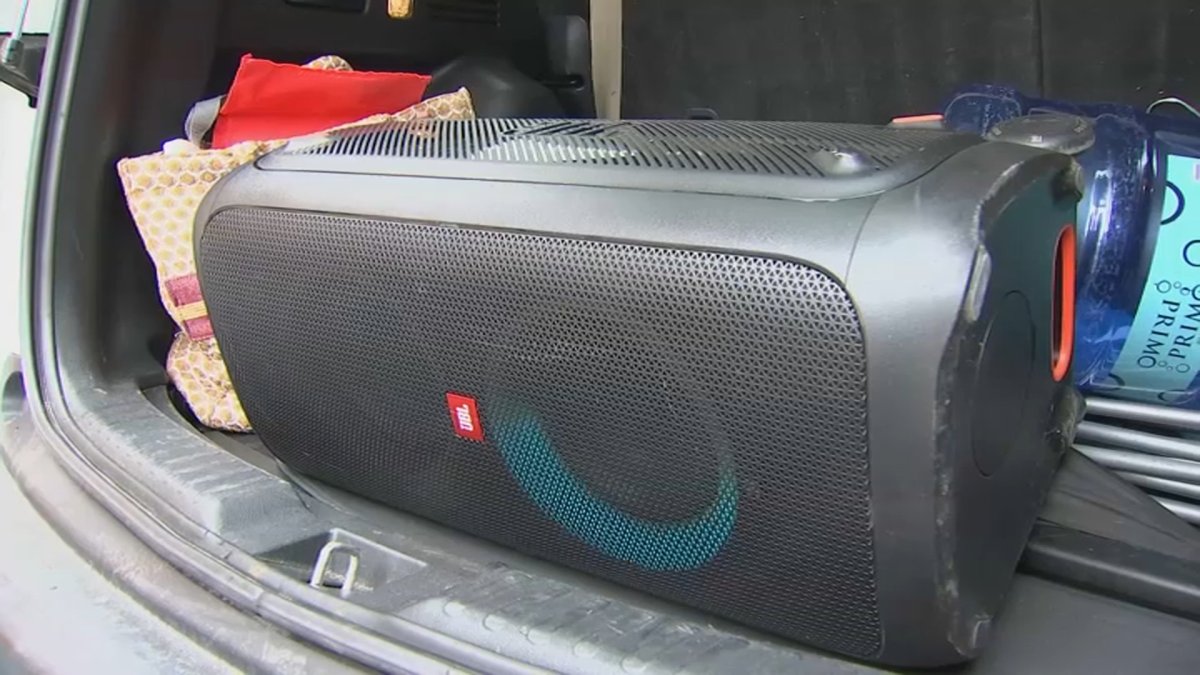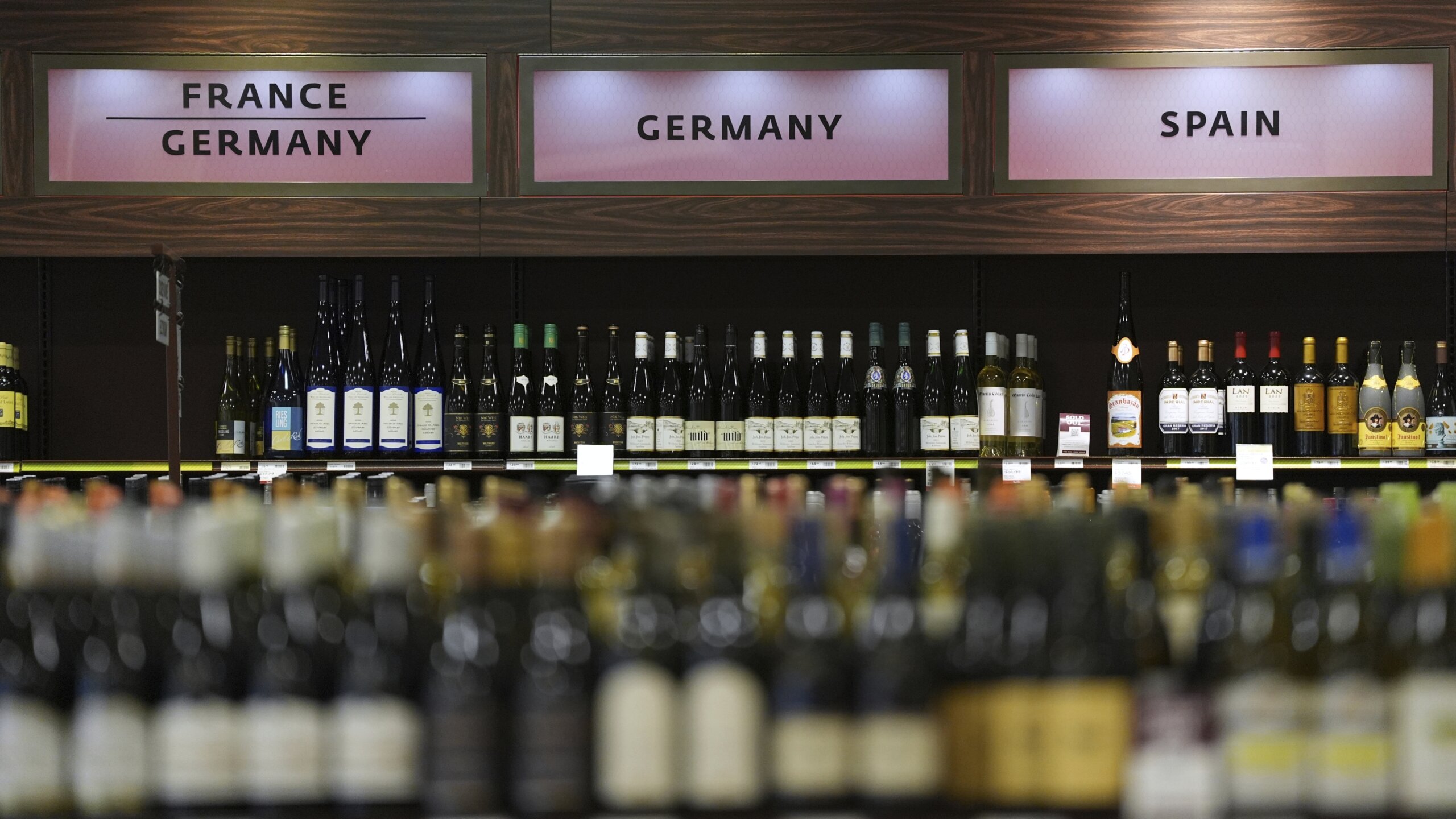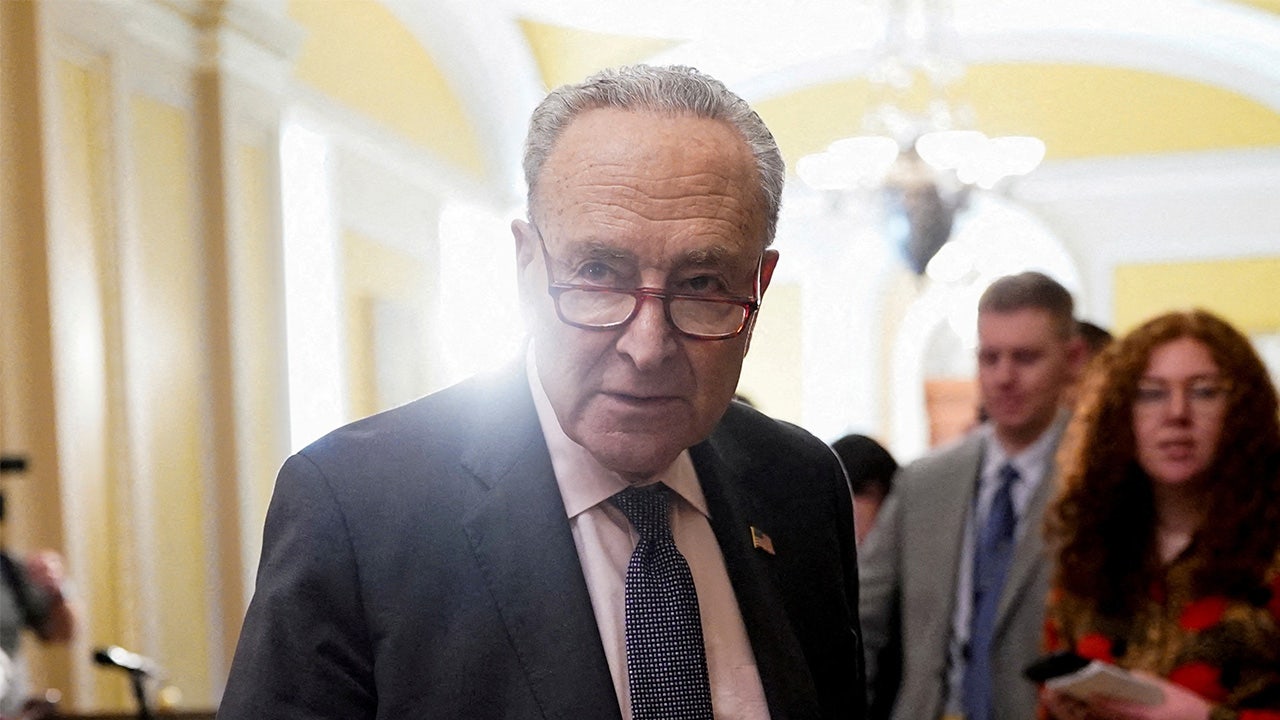World
The contentious EU-Tunisia deal is here. What exactly is in it?
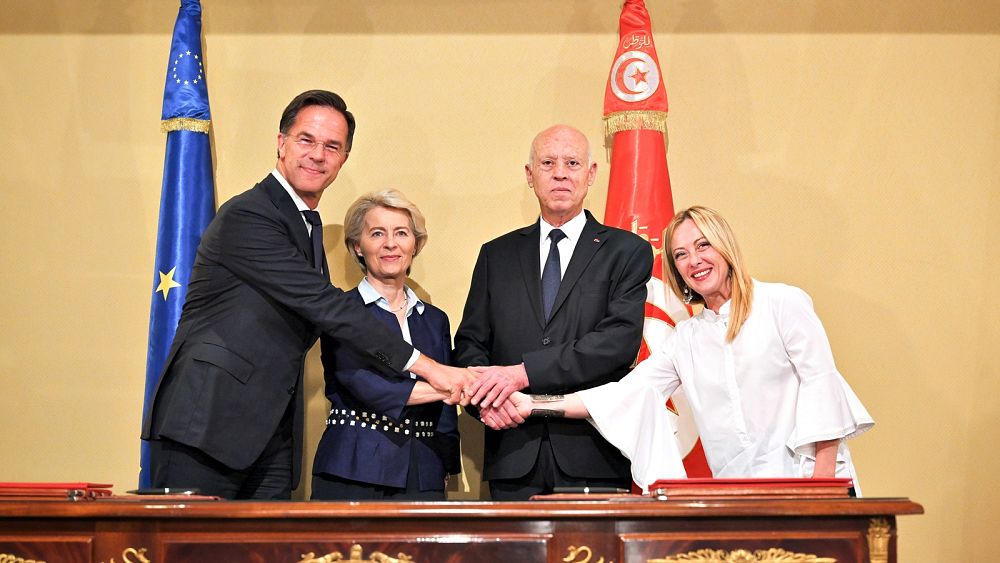
Following weeks of intense negotiations, the European Union and Tunisia have finally signed a memorandum of understanding covering topics ranging from migration to economic cooperation.
The deal was unveiled on Sunday after a meeting in Tunis between Tunisian President Kais Saied and European Commission President Ursula von der Leyen, who was joined by Italian Prime Minister Giorgia Meloni and Dutch Prime Minister Mark Rutte.
“In times of geopolitical uncertainties, it is important to deepen cooperation with our strategic partners,” von der Leyen said, without taking any questions from the press.
The memorandum’s official presentation had been preceded by a flurry of speculation and media reports over how much taxpayers’ money the European Union, a staunch supporter of human rights, would be willing to disburse to Tunisia, whose government has been repeatedly accused – including by the European Parliament– of cracking down on freedom of expression, judicial independence and civil society.
President Saied, in particular, has been criticised for steering the country back into authoritarianism and spreading racist claims against African migrants using talking points that echo the great replacement, the far-right (and baseless) conspiracy theory that proclaims elites are actively replacing native populations with black people.
Said drew a stark rebuke from the United Nations after he alleged in February that “hordes of illegal migrants” arriving from Sub-Saharan countries were part of a “criminal plan to change the composition of the demographic landscape of Tunisia” and were the source “of violence, unacceptable crimes and practices.”
But on Sunday, von der Leyen, Rutte and Meloni glossed over the controversy and, following the motto of “the end justifies the means,” took a pragmatic approach to tackling one of the EU’s most pressing dilemmas: migration.
Here’s everything we know so far.
What’s in the memorandum?
On paper, the memorandum of understanding is a declaration of political intentions made jointly by the European Union and Tunisia to improve their bilateral relations and address common challenges in a “strategic and comprehensive” manner.
The text is not binding and does not create any obligations in and of itself. However, it presents a series of action plans that will be gradually fleshed out, turned into legal instruments and approved by member states before being implemented.
The plans are split into five thematic pillars: macro-economic stability, economy and trade, the green transition, people-to-people contacts and migration.
Each category features different investment and cooperation projects, many of which will involve the direct disbursement of funds from the common EU budget.
How much money is foreseen?
The memorandum is vague on financial figures, which could change according to developments on the ground, but some preliminary numbers have already emerged.
One of them is €150 million, the amount of money the EU intends to provide as budgetary support for the Tunisian government, which has for the past years struggled to rein in its public finances.
The country is considered to be on the verge of bankruptcy as a result of the devastating havoc wreaked by the COVID-19 pandemic, rising inflation, a worldwide swell in commodity prices, high unemployment and an exodus of foreign investment caused by continued democratic backsliding.
Brussels fears the free-falling economy might soon collapse and further exacerbate Tunisia’s internal instability, pushing people out of the country and towards the bloc’s external borders.
The €150-million envelope is meant to avoid that worst-case scenario and ensure the Tunisian government has enough liquidity to ensure the provision of basic services and lay the groundwork for economic reforms.
Additionally, the memorandum foresees €307.6 million for the development of ELMED, a transmission line between Tunisia and Italy to trade low-cost renewable electricity, and up to €150 million for the construction of Medusa, a submarine cable that will use optical fibre technology to connect 11 Mediterranean countries.
These projects will combine grants from the EU budget and loans provided by the European Investment Bank (EIB), meaning some sums will have to be paid back.
What about migration?
This is definitely the crux of the matter.
Tunisia, together with Libya, is considered one of the main gateways for asylum seekers who wish to reach European shores. Some of these migrants are Tunisian nationals who flee the country’s repressive policies, but others come from faraway places such as Egypt, Côte d’Ivoire, Syria, Afghanistan, Pakistan and Bangladesh.
Due to its geographic proximity, Italy represents, in the vast majority of cases, the first destination point for the thousands of migrants who every month attempt to cross the dangerous Mediterranean route, often after having paid an exorbitant amount of money to board an overcrowded boat with squalid conditions.
According to Frontex, last year saw more than 102,000 illegal border crossings through the Central Mediterranean, a 51% rise compared to 2021. Italy is struggling to cope with this surge in arrivals and has declared a state of emergency to deploy extra resources.
This is why migration is a key pillar in the memorandum, with an initial allocation of €105 million to combat anti-smuggling operations, reinforce border management and speed up the return of asylum seekers whose applications are denied.
The money will be provided to the Tunisian authorities in the form of search-and-rescue boats, jeeps, radars, drones and other types of patrolling equipment, and to international organisations that work on the ground, such as the International Organization for Migration (IOM) and the United Nations Refugee Agency (UNHCR).
But the disbursement of the funds will not be linked to any numerical target of annual readmissions or reduction of arrivals; and it will not have additional human rights provisions on top of the traditional clauses the EU attaches to its foreign aid programmes, despite mounting evidence of pushbacks and violent treatment against black migrants.
“We don’t wire money to authorities to do as they please,” said a senior EU official, who spoke on condition of anonymity to defend the memorandum’s most sensitive aspects. “This is not a blank cheque at all.”
The senior official insisted Tunisia would only be expected to accept the return of its own nationals – not of the thousands of asylum seekers who travel through the country in a bid to reach the bloc, something which will be done on a voluntary basis with IOM and UNCHR support. Similarly, Tunisia will not be asked to host in its territory other nationalities that have been denied a chance to seek refuge in the bloc.
“Tunisia is not foreseen to be a collecting point for irregular migrants,” the official said, recalling a similar statement previously made by the Tunisian government.
In parallel, the EU will strive to make it easier for highly-skilled Tunisians to move to the bloc for work through legal pathways and so-called “talent partnerships.” Germany, France and Belgium have already offered 300 positions as part of this initiative, the official said, with a goal to get to 700 by the end of the year.
Could there be more money in the pipeline?
Yes, there could be, but it all depends on the International Monetary Fund (IMF).
As a complement to the over €700 million that has already been earmarked, Brussels is willing to put on the table a substantial envelope of macro-financial assistance to fortify Tunisia’s fragile economy and prevent the situation from spiralling out of control.
Ursula von der Leyen said last month the bloc was ready to supply “up to €900 million” in this regard but when she spoke on Sunday, she avoided specific figures.
“We remain ready to support Tunisia by mobilising macro-financial assistance as soon as the necessary conditions are met,” von der Leyen said.
The conditions refer to ongoing talks between Tunis and the IMF around a 48-month loan agreement worth $1.9 billion, or €1.69 billion. The deal, as proposed by the IMF in October, introduces significant reforms, including on SMEs, taxation, state subsidies, transparency, governance and climate change, in exchange for the money.
The conditions were later denounced by President Saied as “foreign diktats that will lead to more poverty,” thrusting the loan into bureaucratic limbo. Brussels, who, like Rome, had high hopes for the IMF process, believes the signing of the memorandum will inject the momentum that is missing to wrap up the negotiations.
Only when the loan is set up and ready to go will the EU move forward with its own macro-financial assistance. The last time the bloc offered a programme of this kind to Tunisia was in May 2020, when the European Parliament and the Council approved a €600-million envelope in the context of the coronavirus pandemic.

World
US Postal Chief DeJoy Stepping Down Immediately
World
UN blames Israelis for attack on compound but doesn't mention Hamas, says forced to reduce Gaza footprint
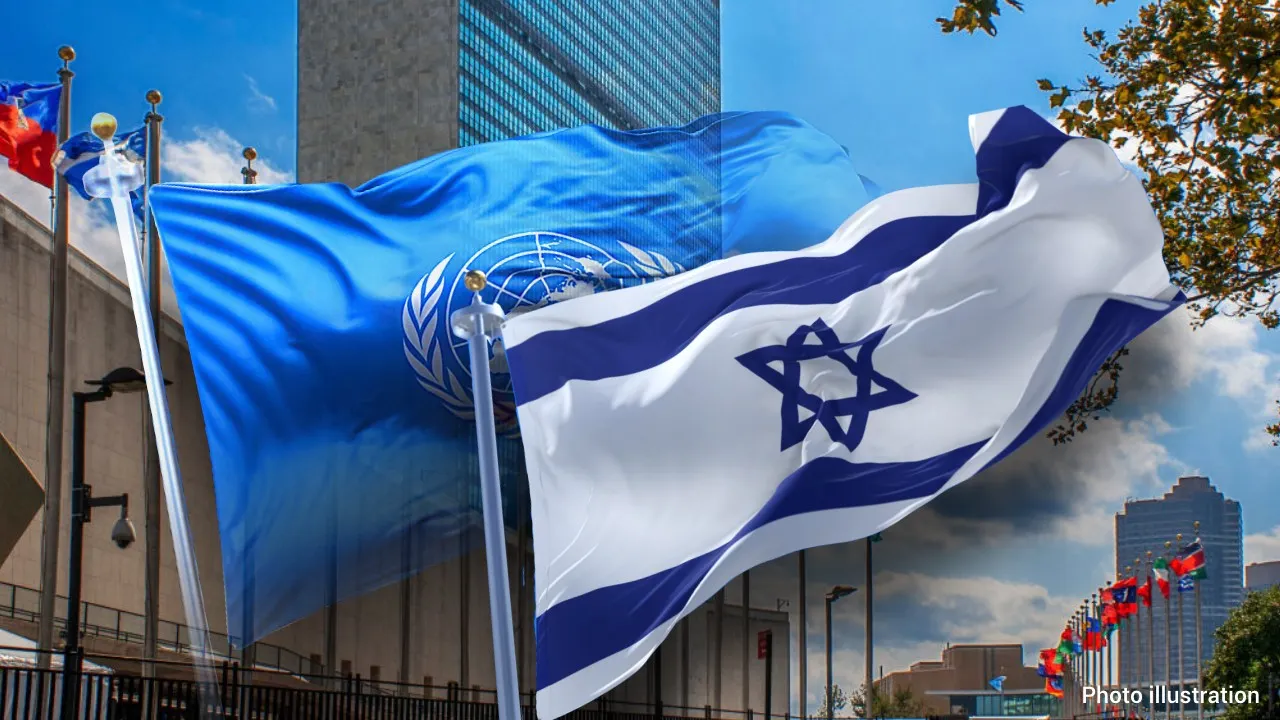
The United Nations is once again under the microscope for blaming Israel for an attack on a compound as it opts to curb its footprint in Gaza, according to the world body.
The spokesperson for United Nations Secretary-General António Guterres issued a statement noting the U.N. had “taken the difficult decision to reduce the Organization’s footprint in Gaza” even as “humanitarian needs soar.”
U.N. spokesman Stephane Dujarric claimed that “information currently available” indicated that a strike on the U.N.’s Deir al Balah compound on March 19 was “caused by an Israeli tank.” One U.N. employee was killed in the incident, and six others were wounded, Dujarric said.
DOGE USAID BUDGET HIT UN IN ‘WORST LIQUIDITY CRISIS SINCE ITS ESTABLISHMENT’
U.N. headquarters in New York City on Aug. 21, 2014. (iStock)
On the date of the incident, the Israel Defense Forces Tweeted that “contrary to reports, the IDF did not strike a U.N. compound in Deir el Balah.” The IDF asked media outlets “to act with caution regarding unverified reports.”
The IDF told Fox News Digital Monday that the U.N.’s claim was “absolutely not accurate.”
While his statement named Israel, it stopped short in naming the terrorist group Hamas or other extremist groups operating in Gaza. “The location of this U.N. compound was well known to the parties to the conflict,” Dujarric continued. “I reiterate that all parties to the conflict are bound by international law to protect the absolute inviolability of U.N. premises. Without this, our colleagues face intolerable risks as they work to save the lives of civilians.” Dujarric added that the “Secretary-General strongly condemns these strikes and demands a full, thorough and independent investigation on this incident.”
PAUSE IN US FOREIGN AID HAS UN IN PANIC OVER FUNDING CUTS, TRUMP SAYS WORLD BODY ‘NOT BEING WELL RUN’
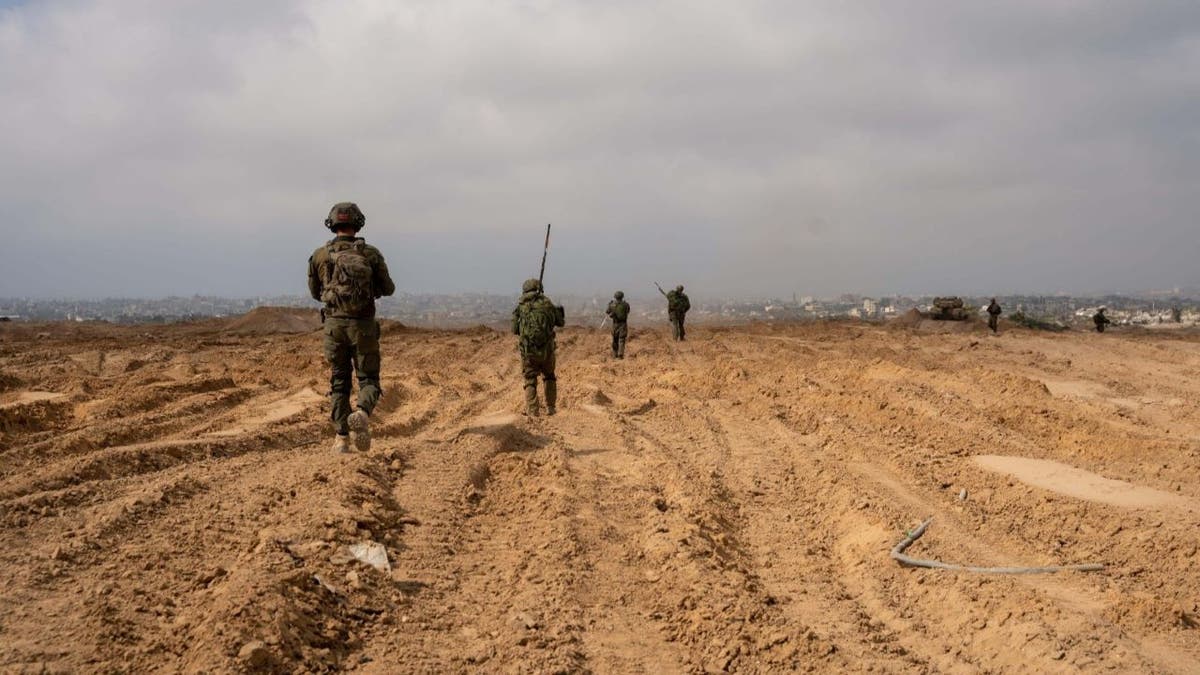
Israeli troops deployed to Gaza. (IDF)
Foundation for Defense of Democracies research analyst Joe Truzman told Fox News Digital that Dujarric’s statement gave the “impression… that the United Nations has deliberately avoided criticizing Hamas and the other Palestinian terrorist groups in Gaza for fear of creating friction with the armed groups. This failed strategy has only emboldened Hamas and its allies, allowing them to exploit UNRWA facilities in Gaza with impunity. Time and again, authorities have uncovered terrorist infrastructure connected to UNRWA facilities, including agency employees who were members of terrorist groups and committed atrocities on October 7.”
On March 23, the IDF killed Hamas political bureau member Ismail Barhoum while he was purportedly operating out of Nassar Hospital in Khan Younis, Gaza. After media outlets, including Al Jazeera, claimed that Barhoum was being treated at the hospital, IDF international spokesperson Lt. Col. Nadav Shoshani Tweeted that Barhoum had “held meetings with other terrorists and senior figures in the terrorist organization” while remaining “in the hospital for many weeks.”
AT LEAST 19 KILLED IN ISRAELI STRIKES IN GAZA, INCLUDING SENIOR HAMAS LEADER
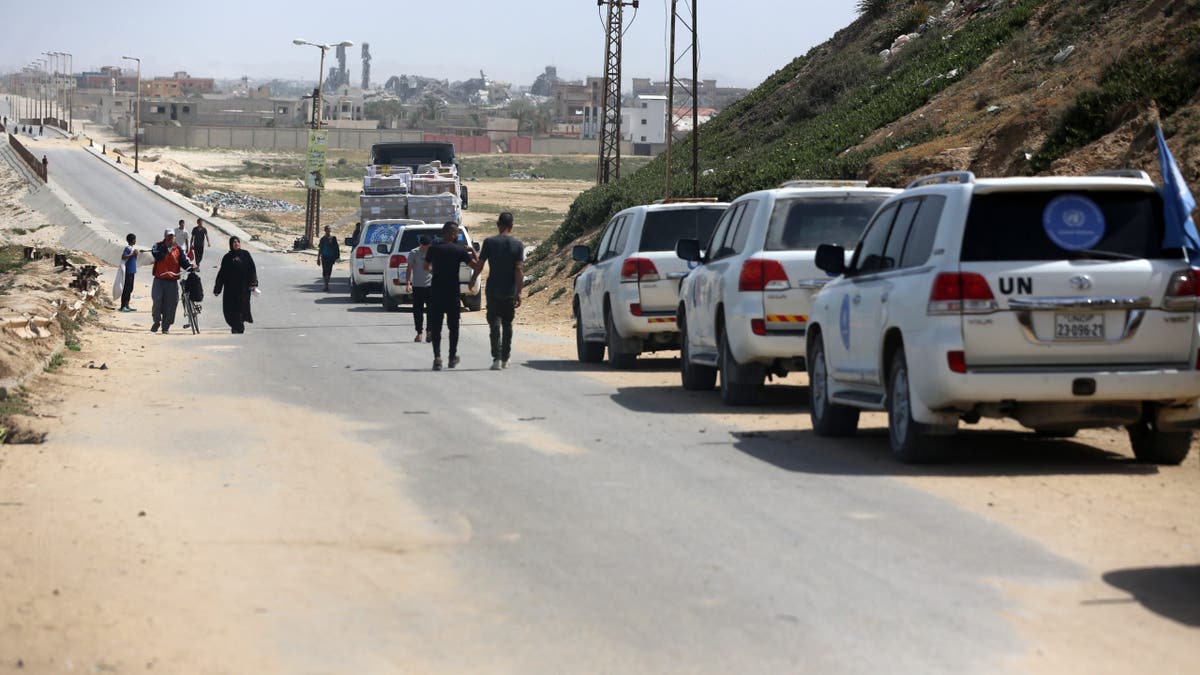
U.N. and the World Health Organization vehicles wait to enter the Gaza Strip with aid intended for hospitals on April 25, 2024. (Majdi Fathi/TPS)
Truzman said the IDF’s explanation was “highly plausible.”
“Hamas has become highly skilled at persuading the public that it does not operate from civilian infrastructure – a demonstrably false assertion,” Truzman said. In a tactic he has “witnessed for years,” he said that “Hamas and its allies deliberately embed themselves within civilian areas to evade detection.”
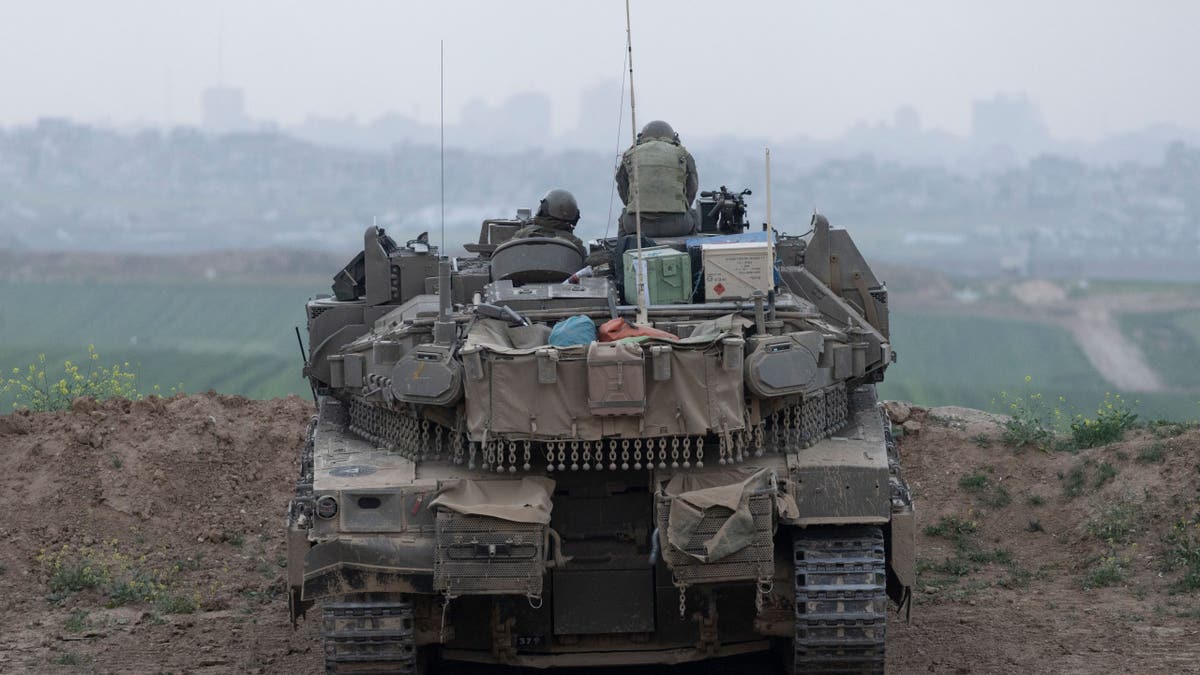
Israeli soldiers sit on a tank in the northern Gaza Strip on March 18, 2025. (Amir Levy/Getty Images)
“The public must understand that Hamas’ top priority is not safeguarding Palestinian civilians but ensuring the Islamist group’s survival,” Truzman said.
Following a ceasefire and partial hostage exchange that saw 25 living and eight deceased hostages returned to Israel and almost 2,000 Palestinian prisoners released, conflict has returned to Gaza. With support from the Trump White House, Israel cut humanitarian aid to Gaza earlier this month in order to pressure Hamas into an extension of the ceasefire, and to free the hostages.
World
At least five killed in RSF shelling in Sudan’s Khartoum: Lawyers’ group

The attack comes as the Sudanese army pushes to take full control of the capital.
Paramilitary shelling on a mosque in eastern Khartoum has killed at least five people and injured dozens, a Sudanese pro-democracy lawyers’ group has said.
The attack on Monday, which has been blamed on the paramilitary Rapid Support Forces (RSF), targeted civilians during evening tarawih prayers at a mosque in the East Nile district of Khartoum, said the Emergency Lawyers network, which has been documenting abuses by both the RSF and the Sudanese Armed Forces (SAF).
This is the second reported attack on civilians since the RSF lost central Khartoum, including the presidential palace, in a major government army offensive on Friday.
On Sunday, RSF artillery also pounded Omdurman, Khartoum’s twin city, killing three civilians in what eyewitnesses described as some of the heaviest bombardments in recent months.
The Sudanese army claims to have seized control of the main headquarters of the country’s central bank from the RSF as it continues to make advances in the capital.
Nabil Abdallah, an army spokesman, said in a statement to the AFP news agency on Saturday that the soldiers had “eliminated hundreds of militia members who tried to escape through pockets in central Khartoum”.
The RSF has consolidated control in the west, hardening battle lines and moving Sudan towards de facto partition. The RSF is setting up a parallel government in areas it controls, although that is not expected to secure widespread international recognition.
Since April 2023, the military, led by army chief Abdel Fattah al-Burhan, has been in an ongoing conflict with the RSF, headed by Burhan’s former deputy commander, Mohamed Hamdan Dagalo.
But the two-year-long conflict has left the country in a deep humanitarian crisis, with tens of thousands of people killed and more than 12 million people displaced.
-
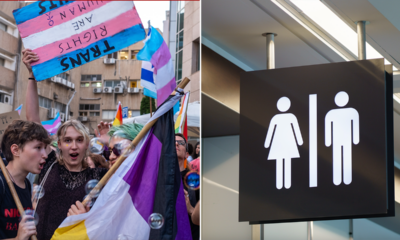
 Midwest1 week ago
Midwest1 week agoOhio college 'illegally forcing students' to share bathrooms with opposite sex: watchdog
-

 News1 week ago
News1 week agoFor Canadians Visiting Myrtle Beach, Trump Policies Make the Vibe Chillier
-

 News6 days ago
News6 days agoTrump Administration Ends Tracking of Kidnapped Ukrainian Children in Russia
-

 News6 days ago
News6 days agoVance to Lead G.O.P. Fund-Raising, an Apparent First for a Vice President
-

 News1 week ago
News1 week agoArlington National Cemetery stops highlighting some historical figures on its website
-

 News1 week ago
News1 week agoBlack Lives Matter Plaza Is Gone. Its Erasure Feels Symbolic.
-

 Movie Reviews1 week ago
Movie Reviews1 week agoPerusu Movie Review: Mourning wood provides comedy that won’t go down in history
-

 Politics1 week ago
Politics1 week agoHouse Democrats to hold 'Day of Action' to push back against GOP-backed spending bill


